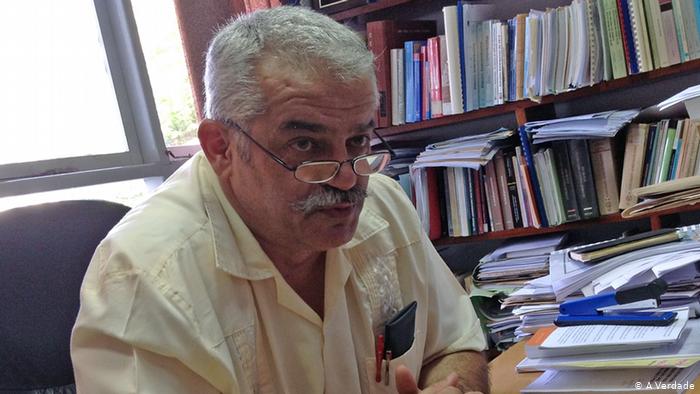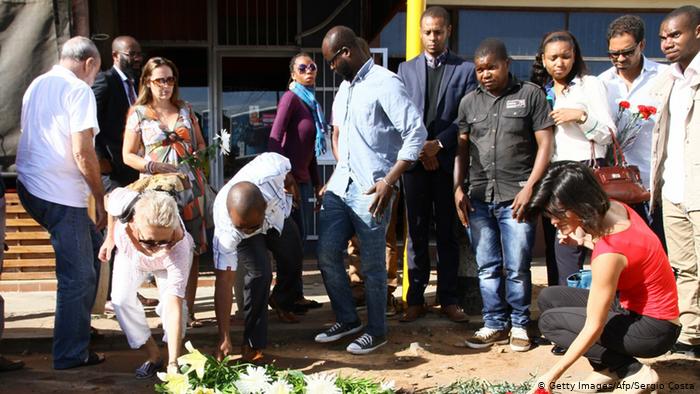Mozambique: Spanish Foundation stresses urgency of efforts to combat child mortality - Watch
Mozambique: Six years without answers on Gilles Cistac murder case

Gilles Cistac, Professor of Constitutional Law at Eduardo Mondlane University, in Maputo. [Picture: DW]
- Civil society organisations believe that the investigation into the assassination of the Franco-Mozambican constitutionalist Gilles Cistac has been shelved. Police however maintain that the Criminal Investigation Police (SERNIC) is still investigating.
Professor and constitutionalist Gilles Cistac was murdered on March 3, 2015, in the Mozambican capital. But six years later, the case still remains unsolved. Civil society organisations are outraged by the silence of those investigating Cistac’s death, and promise not to drop the matter.
João Mosca, from the Observatório do Meio Rural (OMR), is one of those voices, but has stopped hoping for any clarification. “I think the case is already completely shelved,” he told DW Africa.

“I could have hope had other political killings been clarified, even after some time. I know that these processes are very complicated,” Mosca admits. Whenever there are cases like this which have an impact on the country, the police say that there are clues, but the cases never really come to an end,” Mosca concludes.
“How is it possible?”
The economist recalls that the failure to clarify this and other cases of murders of political or economic figures is nothing new in Mozambique.
“The question that arises is: How it is possible [to have] so many cases in which the police do not have the capacity to find even a single case through which what has happened can be plainly clarified?” he asks.
The Centre for Public Integrity (CIP) is also pressing for the murder of the constitutionalist to be solved. Researcher Baltazar Fael says the police have an obligation to provide explanations, whatever the results.

“If the police are unable to clear up the cases, [they should] at least go public and say that they have no clues, they have no evidence, or have not been able to gather enough evidence to proceed with the investigation,” Fael says. “As things currently stand, we do not know if there has already been a final decision to shelve the case or not.”
CIP questions credibility of Justice
The silence surrounding the Cistac case and other murders, Fael says, reveals why “institutions of the administration of Justice in Mozambique have lost credibility in society a long time ago”.
“It is through these cases, which attract the attention of the media and are widely debated in society, that one could, in some way, try to regain that credibility on the part of the judiciary,” the CIP researcher says.
But Fael has no doubt that the case of Gilles Cistac will fade into oblivion. “I do not know what the outlines are, if they are still investigating; I do not know if the French government has made any intervention towards clarifying the case, but the longer we go without resolution, the less likely it is that the case will be solved.”
Lionel Muchina, spokesman for the police in the city of Maputo, says that the case was in the hands of the National Criminal Investigation Service (SERNIC) and that “the investigation is ongoing, and is the responsibility of the entity competent [to do it]”.
Six years after the #murder of #Gilles_Cistac: We demand justice!
Gilles Cistac was the first victim of an endless cycle in the face of physical and psychological #violence against #HumanRightsDefenders. Justice institutions are still silent.
Read more: https://t.co/CotDvjSK2s pic.twitter.com/ZwxhEfjmNz
— RMDDH (@RMDDH_Moz) March 4, 2021













Leave a Reply
Be the First to Comment!
You must be logged in to post a comment.
You must be logged in to post a comment.